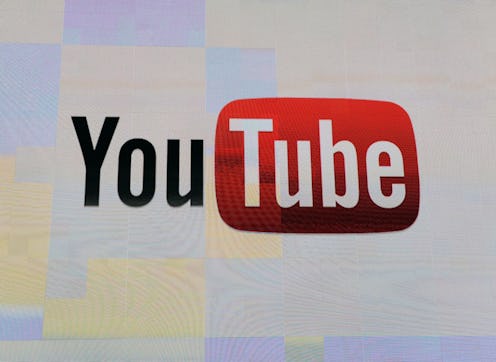News
Judge Orders YouTube To Remove Controversial Tape
It's official: On Thursday, San Francisco's 9th U.S. Circuit Court of Appeals ordered YouTube to remove an anti-Muslim video published in Sept. 2012, which led to violent protests in the Muslim world — and, according to some, may have even fueled the impetus behind the deadly attacks in Benghazi, Libya. And the person who filed suit against YouTube to remove the video? None other than Cindy Lee Garcia, an actress who appeared in the 14-minute film. Garcia claimed that because she hadn't signed a release, she owned a copyright to the video.
On Sept. 20, 2012, soon after the video was released and sparked riots in the Middle East, Garcia filed an emergency restraining order against YouTube and has been trying ever since to have the video taken down. She's been the subject of death threats, even though she appeared for just five seconds in the film, which was titled "Innocence of Muslims" and offered an incredibly negative portrayal of Islam's Prophet Muhammed.
Garcia testified that she had been completely unaware that her clip would be appearing in an anti-Muslim propaganda film. In fact, Garcia allegedly answered a casting call for a film that she was informed would be set in Egypt and titled "Desert Warrior." In post-production, her words were also dubbed over, and Garcia's character appears to be saying, "Is your Muhammed a child molester?"
Needless to say, many in the Muslim world were offended, hurt, and furious over the video.A lower court had initially ruled against Garcia, stating that the copyright resided with the filmmakers. Now, Chief Judge Alex Kozinski of the 9th Circuit has reversed the ruling in favor of Garcia's lawsuit. He wrote:
Just because Garcia isn’t a joint author of Innocence of Muslims doesn’t mean she doesn’t have a copyright interest in her own performance within the film. Whether an individual who makes an independently copyrightable contribution to a joint work can retain a copyright interest in that contribution is a rarely litigated question. But nothing in the Copyright Act suggests that a copyright interest in a creative contribution to a work simply disappears because the contributor doesn’t qualify as a joint author of the entire work.
Judge Kozinski also specified that, while not every actor has a copyright in the film they perform in, Garcia's performance deserved copyright protection. He added:
Garcia’s performance was used in a way that she found abhorrent and her appearance in the film subjected her to threats of physical harm and even death. Despite these harms, and despite Garcia’s viable copyright claim, Google refused to remove the film from YouTube.
The original YouTube link now reads: "This video is unavailable."
Notably, the ruling focused on Garcia's right to copyright, rather than the filmmakers' right to free speech, or whether incitement to violence trumped the right to free speech. President Barack Obama and other world leaders called on YouTube to remove the video after it sparked protests, but Google insisted that its right to free speech trumped other concerns.
Google, which owns YouTube, has announced that it hopes to reverse the ruling. And if that doesn't work? Next stop: U.S. Supreme Court.
